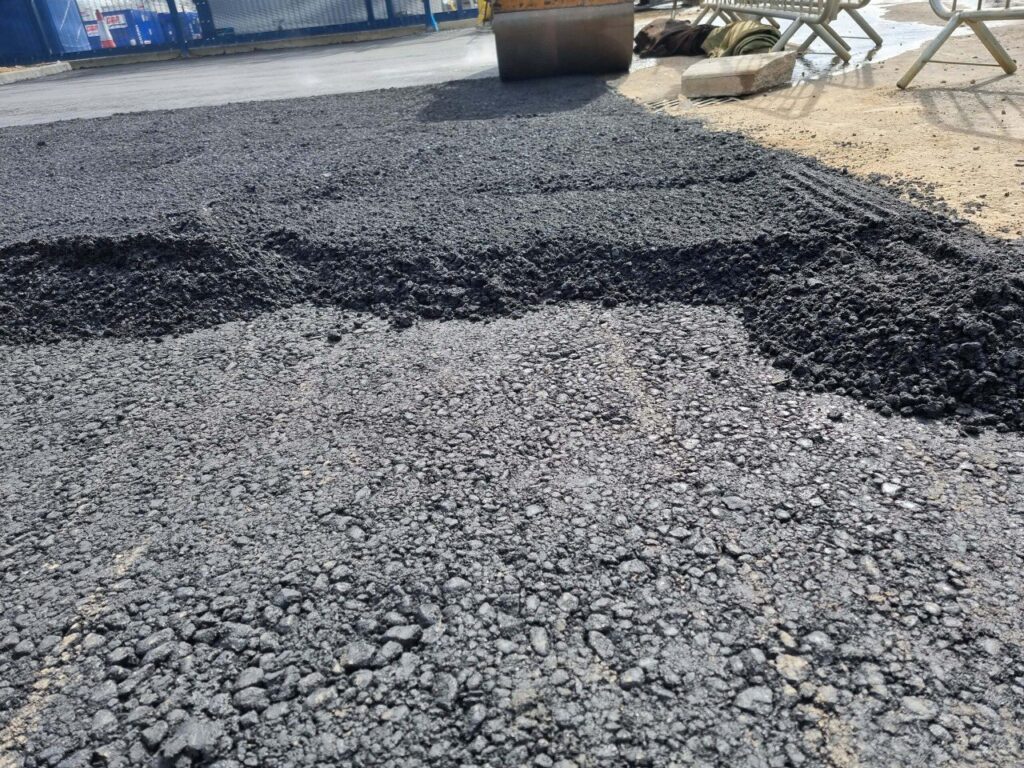The Longevity of Tarmac: Expected Lifespan and Maintenance
Introduction: Tarmac, known as asphalt, is a popular choice for driveways in Dover due to its durability, cost-effectiveness, and smooth finish. Understanding the expected lifespan of tarmac and implementing proper maintenance can significantly extend its longevity. Here’s what you need to know about tarmac driveways:
Expected Lifespan
The lifespan of a tarmac driveway can vary depending on several factors, including climate, usage, installation quality, and maintenance practices. On average, a well-installed tarmac driveway in Dover can last 15 to 20 years or more with proper care. Regular maintenance and timely repairs maximise its lifespan and prevent premature deterioration.
Factors Influencing Longevity
- Climate Conditions: Dover’s coastal climate, with its moderate temperatures and occasional precipitation, generally supports the longevity of tarmac driveways. Proper drainage and sealcoating can mitigate the impact of weather fluctuations, including frost and heat.
- Quality of Installation: A professionally installed tarmac driveway with adequate thickness, proper compaction, and high-quality materials will likely endure over time. Skimping on these aspects during installation can compromise durability and lifespan.
- Usage and Traffic: Heavy vehicles or frequent use can accelerate wear and tear on tarmac surfaces. Ensuring the driveway is designed to withstand expected traffic loads and reinforcing high-traffic areas can prolong its lifespan.
- Maintenance Practices: Regular maintenance is essential for preserving the condition of your tarmac driveway. This includes periodic cleaning to remove debris, timely repairs of cracks and potholes, and applying sealcoating every few years to protect against UV rays and moisture.
Effective Maintenance Tips
- Cleaning: Clean your tarmac driveway by sweeping away debris and washing with mild detergent and water. Avoid using harsh chemicals that can damage the surface.
- Repairing Cracks: Promptly repair any cracks or potholes to prevent water infiltration, which weakens the tarmac and leads to larger issues over time. Use a suitable tarmac repair compound or consult with professionals for extensive damage.
- Sealcoating: Apply a seal coat every 3-5 years, or as your contractor recommends, to protect the tarmac from oxidation and UV damage. Sealcoating also enhances the appearance of the driveway and prolongs its lifespan.
- Avoiding Heavy Loads: To prevent indentations and structural damage, minimise prolonged parking of heavy vehicles or machinery on the driveway. Use load-bearing materials or consider reinforced areas for heavy traffic zones.
- Professional Inspections: Schedule periodic inspections by tarmac specialists to assess the condition of your driveway and address any emerging issues before they escalate.
Conclusion: Investing in a tarmac driveway for your Dover home provides durability and aesthetic appeal, but proper maintenance is key to ensuring its longevity. Understanding the factors influencing lifespan and implementing effective maintenance practices allows you to enjoy a smooth and durable driveway for years.
Call us on: 01304 796 895
Click here to find out more about Dover Driveways & Surfacing
Click here to complete our contact form and see how we can help you with your driveway needs.

